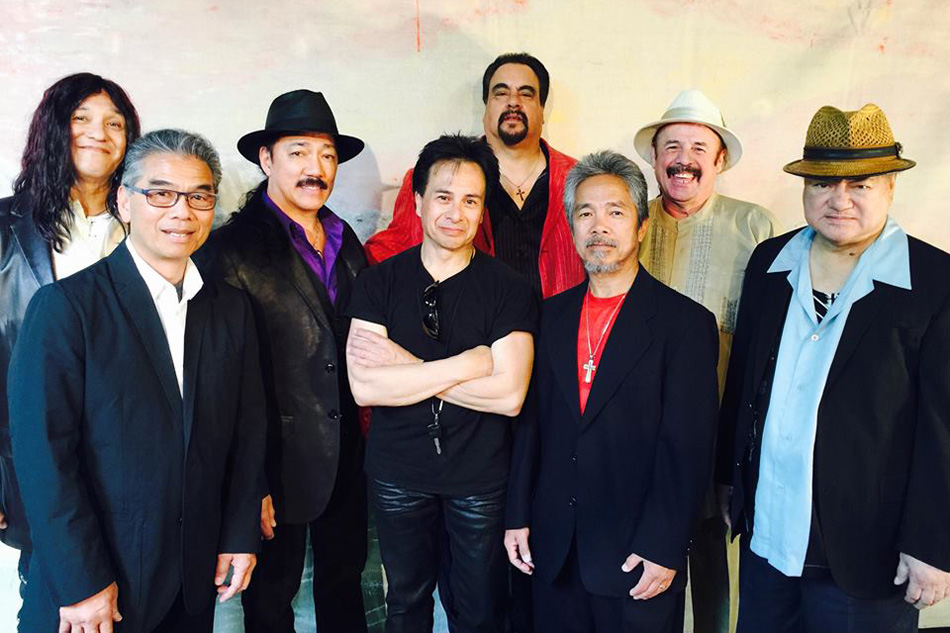Dakila: A Journey to Greatness
“Looking back, it was a very bold move and I think it was ahead of its time to name our band Dakila, a Filipino name. And we kept some of our lyrics in Filipino. To do something like that in 1972 was unheard of.”
David Bustamante is an original member of Dakila – the five-piece San Francisco-based band whose boutique multilingual recordings have become staples in the rotations of DJs, producers, sound designers, and OPM enthusiasts alike. Still, David clearly remembers the San Francisco scene in the ‘70s as being anything but hospitable to Filipino people.
“In order to survive here, you had to speak Filipino at home and not out in public, right? You had to sort of act and think that way so you could get ahead. So Filipino life was only at home. So if you’re out there in the public, you had to assimilate yourself, because a lot of people didn’t know what Filipinos were. And it wasn’t supposed to be a big deal, because you weren’t important enough to say anything.”
But for David and the rest of Dakila – whose lineup to this day includes his brother Rome Bustamante and cousin Francisco Magtoto – saying nothing was out. They were witnessing the social justice movements of the era. They had seen projects like Santana emerge from the local Latin Rock scene into the national consciousness. They knew their sound attracted listeners, and they knew they wanted to use music to explore Filipino and Filipino-American life, without compromise.
Dakila performing at Pistahan
“Dakila is a Filipino word. It means greatness. It means nobility. Being that a majority of the musicians in Dakila were Filipino, we wanted to keep our identity within the music and with the band itself – because at that time there were dozens of Latin Rock bands coming out of the Bay Area, and we didn’t want to be like them. We wanted to be who we were. And I think looking back, it’s really something to be proud of. It would have been easier to try to blend in with the Latino scene – or with anybody else, really – and to [change] our identity. So when we came out in the ‘70s, we made a lot of people proud.”
Local popularity led to sustained bouts of out-of-town gigs, but life outside of music – family, school, work – separated Dakila, and relegated their music to relative obscurity, where it waited to be rediscovered by another generation of creatives, including the next wave of Filipino-Americans.
“We got to tour up and down California and Hawaii, played places like the Fillmore, and Winterland, the Greek, all these places in LA. To this day, one of the dreams is to get this band to the Philippines; we were supposed to go in 1972, but Martial Law stopped it from happening. So we made two albums, and only one was released. The record was pretty popular in Europe and Asia, but the band never really made money off of it. And now here we are, almost 40 years later, and I find out the album is considered a classic, people are collecting it. DJs are using samples from the music. It is being used in movies, commercials. And over the span of those 40 years, the culture has changed, and Filipinos are everywhere. We are in media, in music, in politics, in the film industry, in literature. We’re everywhere.”
Tracing the growth and influence of Filipino-American people and understanding Dakila’s unique and ongoing positionality in that history, David notes the final series of events that reunited the band around one of its original values: speaking for yourself, in your own way, and not letting others do it for you.
“This book was written about the music that came out of San Francisco in the early ‘70s, and it was called ‘Voices of Latin Rock,’ and we were mentioned a lot in this book. But it was funny, because they never actually interviewed any of the original members of Dakila – it was all told in the third person! But it did put us back into the limelight again and caused a lot of interest in the band. So I got my brother, Rome Bustamante, who’s an original band member, and my cousin Francisco Magtoto, who’s the original drummer, and we put some songs back together, just out of curiosity, and also to see if we could put a tribute performance back together. And we actually sounded pretty good!”
With their UNDSCVRD SF performance at Victoria Manalo Draves Park – the veritable heart of the SOMA Pilipinas Cultural District – Dakila reinforces the story they have been working on for almost five decades, told through their music as much as the journeys and lives they’ve lived. And they reflect back the stories and journeys of every successive generation of Filipino and Filipino-American people who come through the City and make the Bay their home.
“What we did back then was to try to make a statement about who we are, and that is real now. [There’s] another generation that’s just learning about Dakila, who may have heard their uncles listening to this music. Learning about your heritage and the struggle for our families that come here from the Philippines and try to make a better life for their family, that will always be of big significance for this band.”
Written by Paul Barrera.


